Put your hand up if you tend to react strongly when someone cuts you off driving, when you read an infuriating headline, or when a friend says something insensitive. I feel you. I’ve definitely been guilty of instantly firing off an outraged email or picking a fight over something trivial more times than I can count.
In the moment, outrage feels justified and even righteous. But as the dust settles, I usually end up feeling embarrassed by the intensity of my reaction. The situation often wasn’t nearly as big a deal as it seemed when I got hooked by emotion. My ego now has to deal with the shame of flipping out over nothing, too. Ugh.
As the saying goes, “Learn to sit back and observe; not everything needs a reaction.” This wisdom reminds us of a key truth: reacting instantly to challenging people or situations with anger, judgment, or defensiveness frequently causes more harm than good.
By sitting back, observing without immediately labeling things as “bad” or “unfair,” and responding mindfully aligned with our values, we prevent so much unnecessary stress. Developing nonreactivity leads to greater wisdom, serenity, and levelheadedness when navigating life’s complex dynamics.
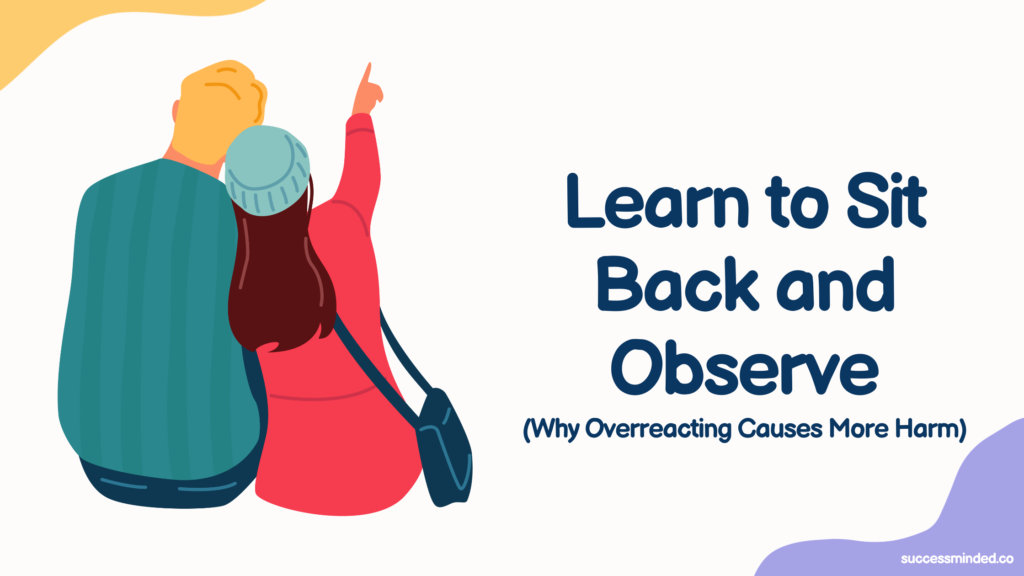
Why We Tend to Chronic Overreaction
What drives so many of us to be chronic over-reactors? It’s wired into our biology and psychology in several ways:
- Perceiving verbal or emotional threats triggers our reptilian “fight or flight” brain, putting us instantly on the defensive.
- We take impersonal situations personally by making them about our ego, self-image, or insecurities.
- Cognitive biases skew our perceptions toward the negative – we see harm where none exists.
- We operate on autopilot based on old conditioning rather than present realities.
- Daily stresses accumulate, and small frustrations can be the “last straw” that sets us off intensely.
- We get hooked by clickbait headlines meant to provoke outrage and reactions.
- Social media feeds an addiction to drama and outrage. The more reactions we share, the more ads we attract.
But being so easily provoked carries consequences…
The High Costs of Chronically Reacting
While the odd eruption happens to everyone, frequent overreactions strain our mental health, relationships, and effectiveness over time:
- Getting outraged is emotionally exhausting if it’s our go-to mode. The adrenaline rollercoaster destabilizes our mood and thinking.
- Staying worked up keeps our threat response system activated, causing anxiety and tunnel vision.
- Seeing neutral situations through a lens of judgment or attack breeds resentment and bitterness.
- It shrinks our window of tolerance – how much adversity we can handle before blowing up. Each overreaction lowers the bar.
Relationally, going nuclear over minor offenses strains bonds with friends, family, and colleagues:
- They walk on eggshells, afraid to share openly without setting us off. Communication shuts down.
- We lose trust and credibility by continually crying wolf and making mountains out of molehills.
- It’s unpleasant being around someone so quick to anger and lacking self-awareness.
Finally, productivity and achievement suffer when we’re mired in outrage:
- Daily upsets sap mental energy that could fuel creativity, ambition, or greater priorities.
- They distract our focus away from important work into ruminating over something trivial.
- Getting hooked into petty conflicts limits our ability to solve complex problems with reason and nuance.
Clearly, overreacting creates more life problems than the original perceived offenses that triggered it. There has to be a healthier way…
The Value of Sitting Back as an Observer
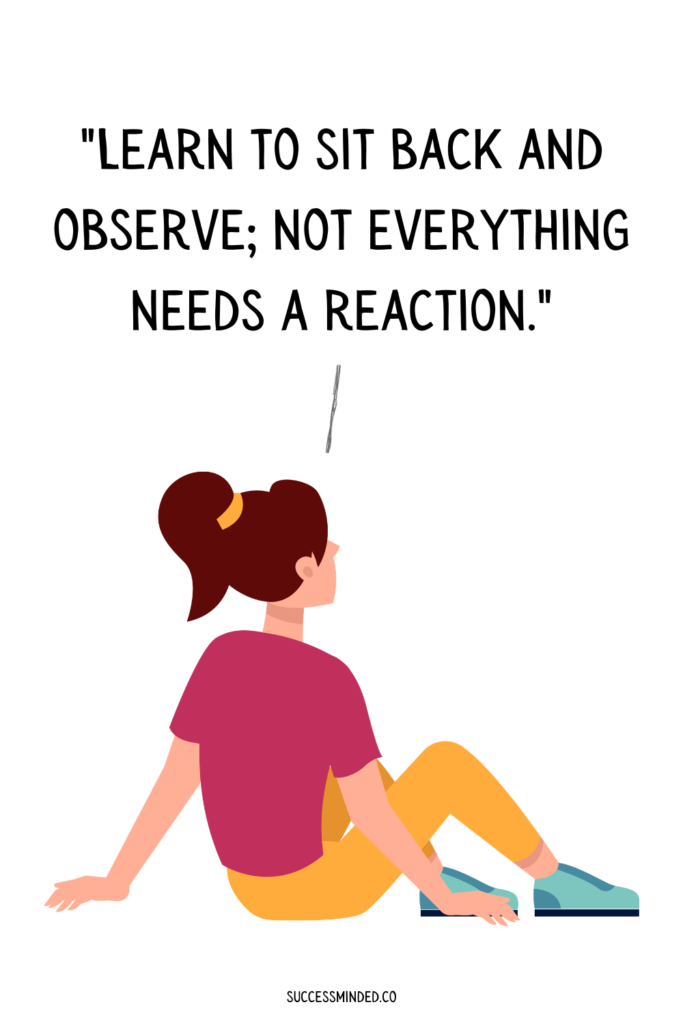
Imagine taking on an observer mindset when something bothers you rather than instantly moving to outrage. With neutral detachment, simply witness life unfold without constantly judging or labeling everything.
Cultivating nonreactivity isn’t about not caring or tolerating harm. It means gathering more objective data before determining if action is truly warranted rather than assuming the worst of a situation right away.
Pausing before reacting creates space for wisdom and clarity to emerge beyond knee-jerk assumptions. We gain understanding of the many interwoven root factors creating issues, rather than just reacting to surface-level symptoms.
Taking a neutral seat also prevents making hasty words or actions in the heat of anger that we might later come to regret. It allows us to evaluate whether any offense was intended or not before attacking others.
When we don’t instantly jump on everything negatively, we conserve tremendous mental energy otherwise spent on outrage, worry, and drama. This frees us up for priorities requiring deeper focus.
Over time, the habit of sitting back as a neutral observer fosters remarkable inner peace and tranquility. We realize most things don’t require a heavy reaction. The noise and chaos settle.
Strategies to Develop the Observer Mindset
Here are some strategies to cultivate nonreactive observation skills:
- Meditation builds the “observer self” that watches thoughts and feelings without attaching to stories.
- When something bothers you, pause and ask sincerely: “Is this situation really worthy of my maximum outrage?”
- Before reacting, wait 24 hours. Emotional distance inevitably brings a wiser perspective.
- When assessing people’s behaviors, assume the best intentions rather than instantly demonizing them.
- Become aware of triggers that tend to hook you into emotional defensiveness. Heal these sensitivities.
- Role model respected observers you admire. Note their tendencies for a neutral but thoughtful presence.
The next time you feel your temper rising, pause and sit back. Neutrally observe all dimensions of the situation before deciding if action is required. See the bigger picture beyond knee-jerk reactions. Apply reason more than emotion.
Conclusion
Cultivating an observer mindset prevents much unnecessary suffering – for both ourselves and everyone within the blast zone of our overreactions! By learning to sit back more, we conserve energy for priorities and gain wisdom in the long run. We intervene justly when needed, and let the insignificant stuff go.
Over time, the high road of nonreactivity leads to greater tranquility, deeper connections, and increased effectiveness. And that makes life a lot more enjoyable!

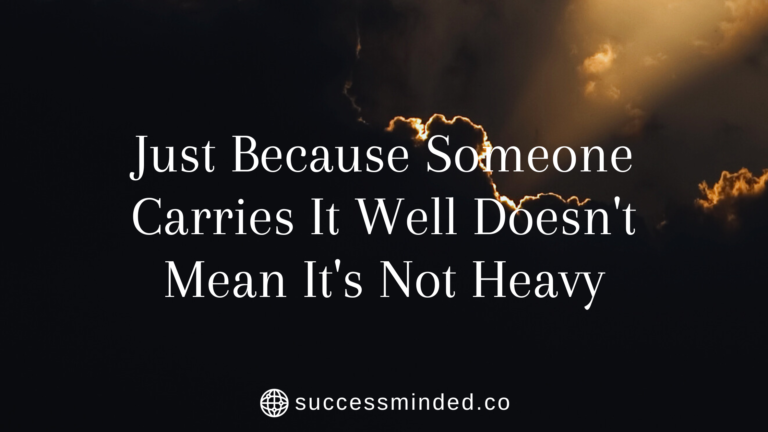
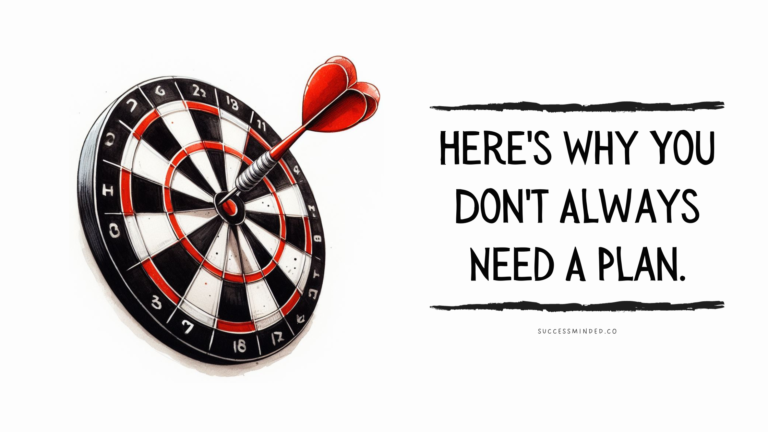
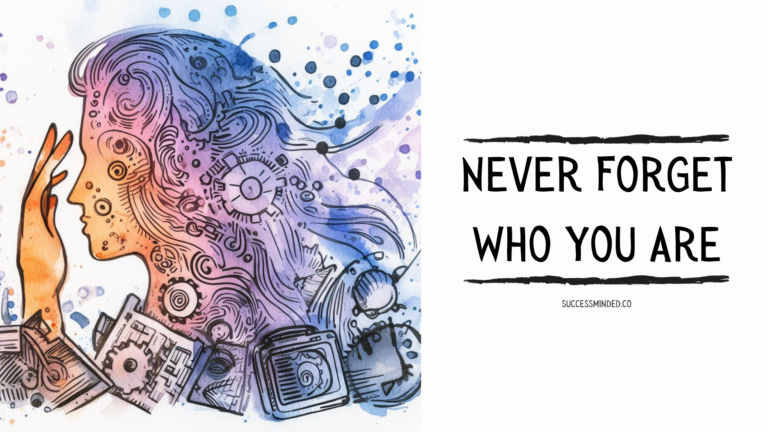
Pingback: Embracing Destiny: Understanding 'What's Meant to Be Will Always Find a Way' – Success Minded